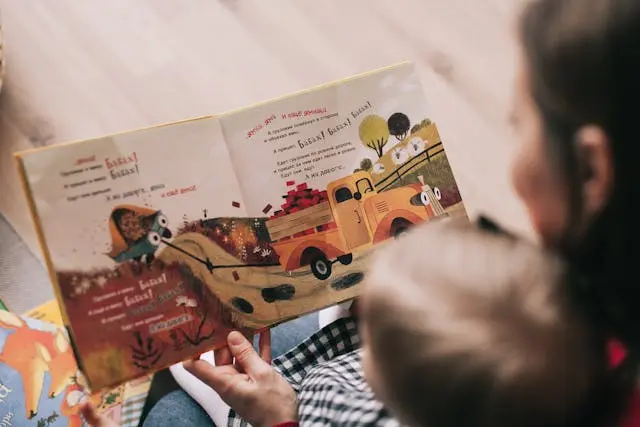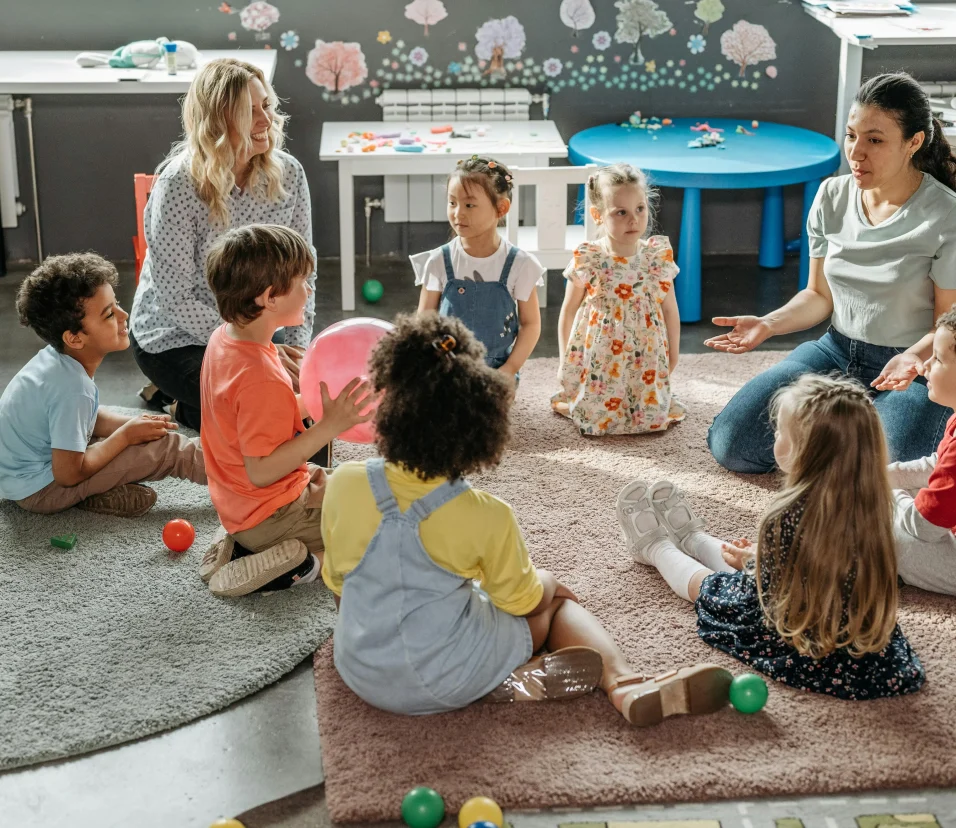Our parents used to tell us stories in our childhoods. As a matter of fact, storytelling has been around for centuries and is a part of everyone’s childhood.
Storytelling is the best learning program in early childhood. Through it, children can learn about language, life, themselves, and the world around them. This way, parents can shape the process of early literacy in their children.
This is just the tip of the iceberg. While we have discussed a few reasons above, storytelling has way more to offer. Here is a description of storytelling’s importance.

1. Help Children Learn Sounds, Words, And Language
Children’s minds are in an underdeveloped state. They pick everything very fast whether those are expressions or words.
When you say “shealthtory”, one thing is clear, it is going to have words, a lot of phrases, and terminologies in order to communicate. These resources are the best way to teach children how to speak and what words to use.
This happens in a very interesting manner. Since their minds are already looking for such opportunities in the current development stage, they immediately start understanding and memorizing words and their pronunciation.
Ultimately, they end up learning different familiar and unfamiliar words, the way to pronounce them, and how to organize them in sentences.
2. Make The Children Curious And Imaginative
When you’re sharing a story verbally, there are no videos, photos, or illustrations to point out in front of the children. So, they are naturally supposed to imagine them.
This happens especially if they are 4 years of age or older. They already have seen a lot of things and know what they are and how they look.
And when you talk about those things, they unintentionally try to imagine them, so their minds keep expanding. It results in their creative and imaginative thinking.
For example, when we say “talking dog” or “flying car” during the storytelling process, children picture these scenarios in their minds. They become more curious and imaginative.
If you keep telling them stories for a long while, they ultimately end up being more imaginative and creative. This skill at a very early age helps them perform better in their practical life.
3. Develop Their Brains And Prepare Them For Later Schooling.
If you have heard some stories, you know how engaging and interactive they are when you’re listening to them. Not just the children but even elders keep sitting there, listening to stories without getting bored.
When children listen to stories and learn through them, they find learning entertaining. Unintentionally, their minds start believing in it, and it becomes a part of their mindset.
Storytelling develops children’s minds into thinking that learning is an enjoyable and engaging process. They learn to concentrate on what is being taught and told to them. This prepares them for later schooling.
Later, when their teachers teach them lessons, they won’t feel bored. Instead, their minds will signal that they have done this creative thing earlier. They will love to learn new things this way.

4. Develop Listening And Communication Skills
During the storytelling process, different linguistic techniques, such as pitch, speed, laughter, pause, etc., are used to make the stories more engaging and entertaining.
They not only learn new words but also observe the way the story is being told to them. They look for expressions, speed in pronouncing words, a sense of humour, and all the other things involved in effective communication.
5. Improve Their Memorizing Capabilities
Stories require children to memorize them, and they do this, especially when they listen to engaging and interesting stories.
Children’s minds can memorize different plots in the story, the characters involved, their names and appearances, and other important details. They put all their minds into memorizing these aspects of stories.
And when they keep doing this for a while, they develop an ability to memorize things. This practice ultimately improves their memory.
6. Teach Them About Different Cultures
Some stories talk about culture and history. These carry facts and opinions about different places, people, and norms in a particular area.
Since all this information is new to children, they find it much more creative and engaging. As children learn words, sentences, phrases, and different ways to communicate with them, they also learn about cultures.
They can understand their own culture. They can also understand different people, their behaviours, religions, and countries.
6. Make Their Minds Creative And Critical
Children’s minds are creative. When you’re telling a story to children, their minds are continuously asking them a lot of questions about the story.
They ask themselves a lot of questions, such as
- Why did something happen?
- How did that happen?
- Who did it?
- What will happen next?
- What will the character do next?
- Is it good or bad?
Once these questions hit their minds, they try to answer them on their own. As a result, they start developing the skill of critical thinking. Their mind becomes more creative and imaginative. They develop their own perspectives about things.
But here is the catch: it all depends on what story you tell. You have to be extra careful regarding choosing a good, creative story. If you don’t have one, use the AI-based Editpad’s story generator to create one.

This AI-based story generator is designed carefully to write engaging and compelling stories quickly. One thing that is very important is the prompt you provide. The story is more interesting if the prompt is descriptive.
Interestingly, this tool lets you generate various types of stories, such as fictional, nonfictional, classic, romance, and more. You can also select the length of the story to be generated along with the creativity level.
Here are the steps to generate stories with this tool:

- Paste your story topic into the text input box. We have chosen this topic for our story: A family camping trip takes a wild turn when they encounter a talking park ranger, a grumpy bear, and a hidden waterfall with magical powers.
- Select the length from Short, Medium, Long, and Extensive.
- Choose the story type.
- Pick the creativity via Set Creativity.
- Click on the “Write Story” button to generate the story.
7. Develop Empathy And Emotional Intelligence
Stories not just carry words but also emotions. Emotions that are connected to people, places, situations, and cultures. And when you tell such a story, you expose the children to all the emotions of the story.
Remember, it takes more time to teach children emotions than words. However, they will eventually start understanding them. They will learn to connect with different situations, people, and personalities differently.
Conclusion
Storytelling is vital for young children’s learning. When adults tell stories, kids learn about words, sounds, and language in an enjoyable way.
They use their imagination to imagine what’s happening, which makes them more curious and creative. Listening to stories helps kids concentrate and gets them ready for school later on.
Plus, they get better at remembering things, like characters and plots. Stories also teach kids about different cultures and help them understand emotions better.
So, storytelling isn’t just fun; it’s a fantastic way for kids to learn, grow, and understand things better. It’s like a fun school lesson that teaches them lots of things.









